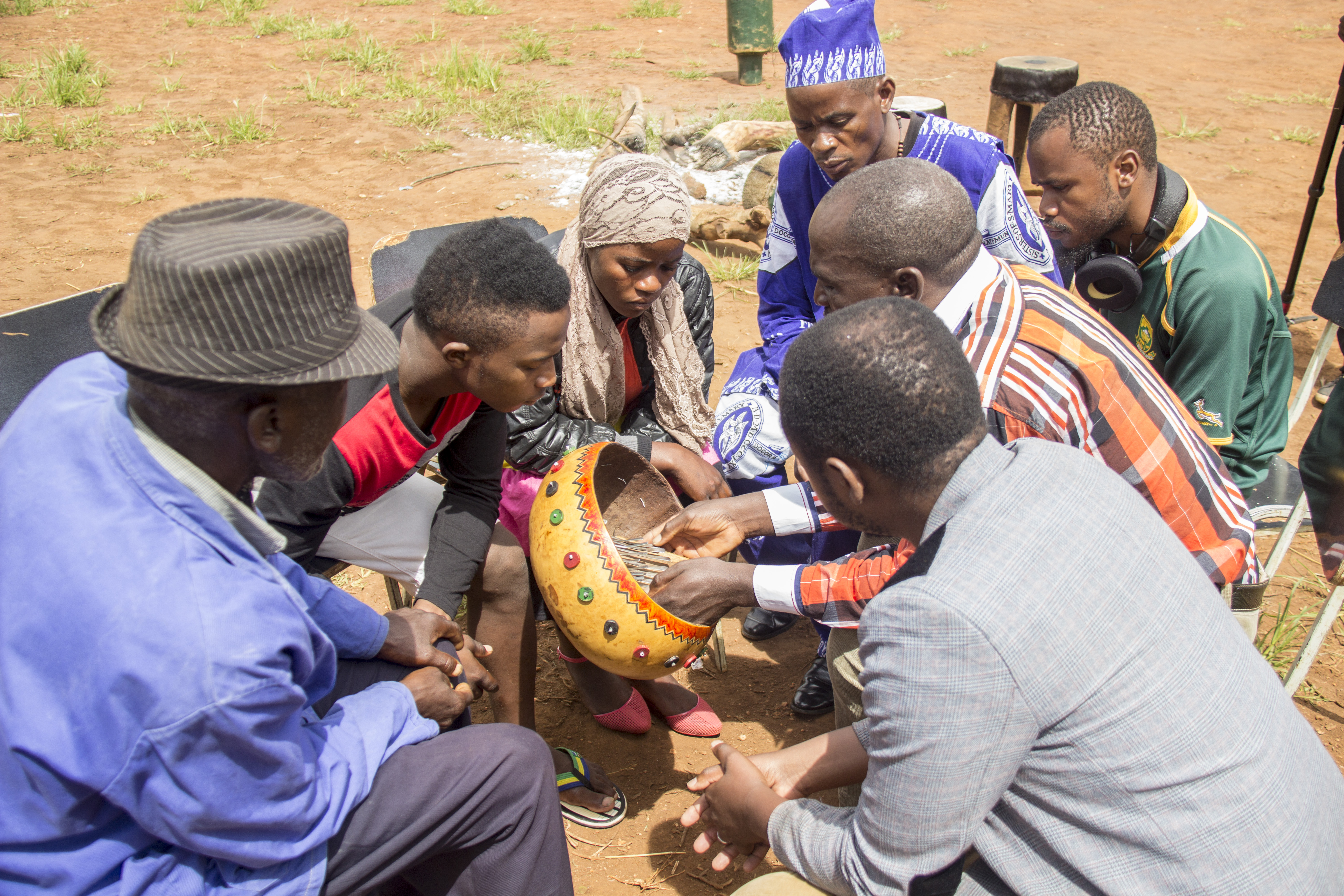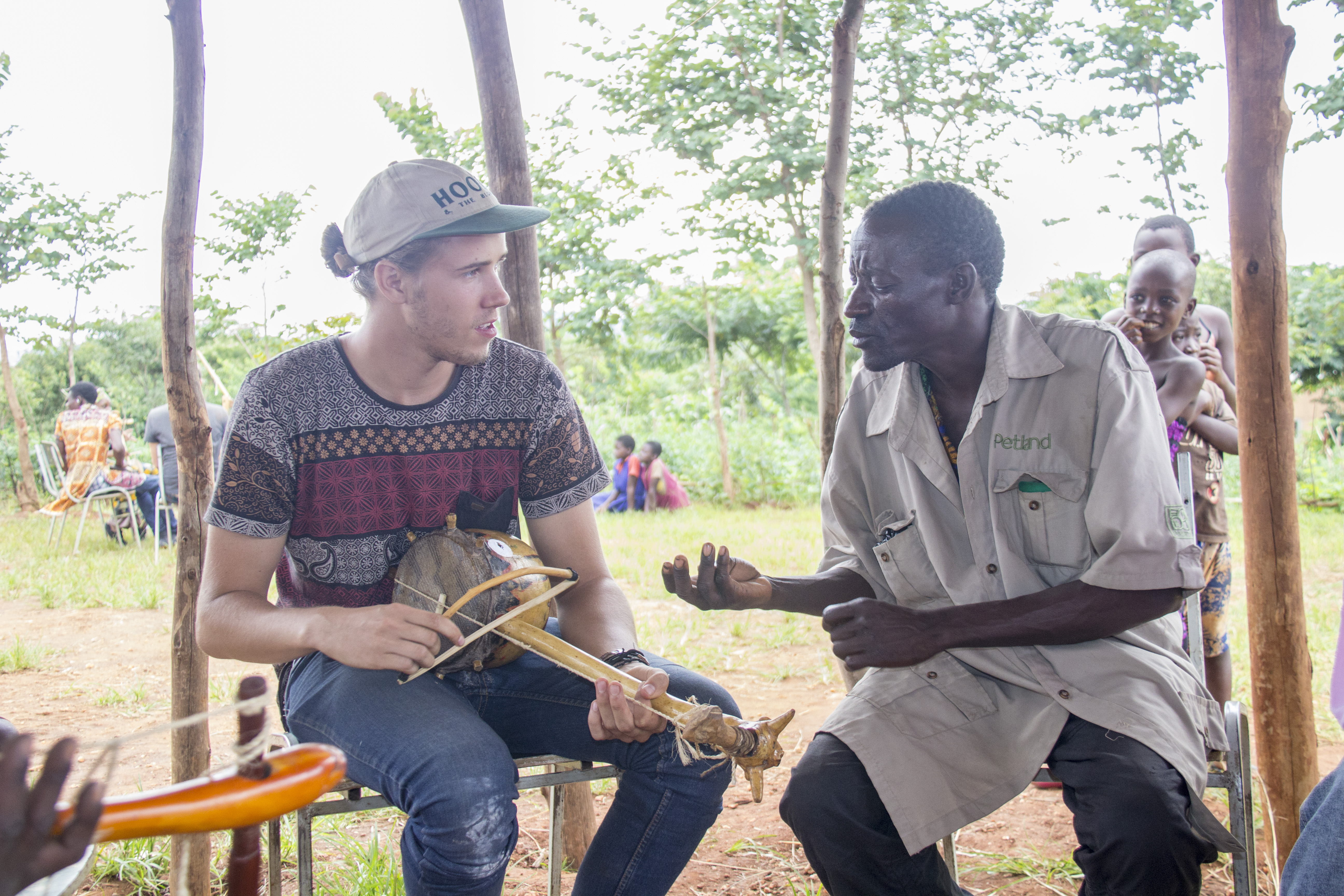JOIN THE JM JAZZ WORLD ORCHESTRA 2026!
- about 1 month ago
- article
From 29th February to 6th March 2016, Music Crossroads Malawi organised a five-day Ethno-music camp, held at Search Private primary school in Ntchisi, called Pakhonde Ethno-music camp. Search Private Primary School is where renowned Malawian ethno musician, Charles Chavalamangwere Mkanthama, teaches and practices his art in ethno music.
The idea to hold the Pakhonde Ehno music camp was organised as the community had noticed that the art of playing ethno music instruments was on a decline and that there has been few initiatives done to ensure that the skill and practice of ethno music is passed down through generations.
Secondly, the ethno music camp was meant to be a medium to encourage cultural exchange in the field of traditional music with different countries. At this particular ethno music camp there were participants from Norway, Brazil, Mozambique and Malawi.
The music camp “Pakhonde”, which means ‘veranda or balcony’, symbolically implies a place where people sit and share ideas, as done in most African households.
The main objective is to revitalise the art of playing ethno music instrument and to encourage cultural exchange.
THE MAVIRU INSTRUMENT WORKSHOP
The workshops started on the 29th February with 30 participants. On each day, participants attended a master-training workshop based on a particular music instrument such as the following:
Several experts in the different instruments took turns in training the participants on how to play them. Some of the experts were drawn from the local communities in Ntchisi.
At the end of each practice sessions, each group was required to improvise a song and sing using the instruments that they had just learnt.

THE IMPROVISATION AND JAMMING SESSIONS
Every night from 19:00 to around 21:00, the participants and some local people sat around a fire and played different traditional or improvised songs, using the traditional instruments available. The jamming sessions were facilitated by Mr. Waliko Makhala and Mr. Charles Chavalamangwere Mkanthama.
Apart from local Malawian music, the improvisation and jamming sessions allowed participants to learn traditional music from the other countries represented at the workshop.
TRAINING ON TRADITIONAL MUSIC FOR CHILDREN/SCHOOL PROGRAM
On Wednesday, Mr. John Duma and Ms Sunniva both from Music Crossroads facilitated a workshop on traditional music for children. Mr. Duma is music and dance trainer for Hear Us Children Musical at Music Crossroad Malawi, while Miss Sunniva is a Professor of Music with particular focus on ethno-music.
The lecture took both theoretical and practical approach. Mr. Duma was demonstrating the practical means of training children and Ms Sunnivan was explaining the theories in English with Mr. Chingota translating into Chichewa.
The key concepts explained included the importance of using the students as resources in the teaching and learning process and always maintain contact with the students.
COMMUNITY PARTICIPATION
Some considerable effort was made to involve the local communities during the entire session. For instance, some of the local people were used as expert trainers of the various music instruments, such as Kaligo, Mangolongondo and Mbira. The local communities further took part as participants in the ethno music workshops, and in the music concert that took place on Saturday, 5th March, 2017 as both performers and organisers. Women from surrounding villages were involved in preparing lunch and supper for all the participants, regardless of race.

THE ETHNO MUSIC CONCERT
The highlight of Pakhonde Ethno music camp was the music concert that took place towards the end of the camp. It was a great performance.
The concert on, held on Saturday 5th March, was well prepared and everyone present actively participated in the process. The main essence of the concert was for participants to showcase the skills that they had acquired during the time that they were in the camp. To this end the participants were divided into three groups and each group was asked to improvise a song in any language. Some time was dedicated each day for the groups to rehearse their songs.
On Thursday, 3rd March, 2016, participants went to the markets close to the venue to raise awareness about the concert. The three groups were dropped at strategic spots where they could just start performing unannounced. The performances attracted huge interest from the people around the markets, more especially because European group members were participating in traditional dances, a sight that locals had never seen before.
The participants then took advantage of the gatherings to announce the concert.
The concert was called Chavala Concert, in honor of Mr. Charles Chavalamangwere Mkanthama whom, together with Mr. Mathews Mfune, hatched the idea to hold both the ethno music camp and the concert started at around 14:00. However, by 13:30, the venue was already filled with approximately 600 people in attendance!
The guest of honour at the concert was T/A Kalumo of Ntchisi. Mr. Isaac Chingota, Performing Arts Officer in the Division of Arts and Crafts, was chosen to be the Master of Ceremonies.
Concert performances came from:
Certificates of attendance were also awarded to the participants.
The ethno music camp was a great success. The activity managed to draw together people of different cultural and musical backgrounds to share knowledge and skills in ethno music. According to Mr. Mfune, the plan is to hold the concert annually so as to continuously promote the use of ethno music instruments, in the country.
The initiative therefore needs to be supported as a part from promoting technical skills in the field of ethno music especially to the youth as means to sustaining the practice.
Furthermore, Ntchisi district though rich in cultural expressions, does not have an avenue for promoting local tourism. The festival therefore offers a unique opportunity for growing ethno tourism in Ntchisi district.
